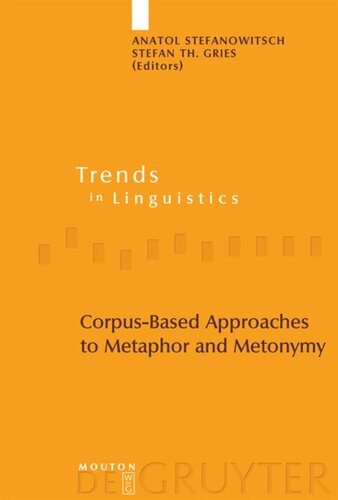

Most ebook files are in PDF format, so you can easily read them using various software such as Foxit Reader or directly on the Google Chrome browser.
Some ebook files are released by publishers in other formats such as .awz, .mobi, .epub, .fb2, etc. You may need to install specific software to read these formats on mobile/PC, such as Calibre.
Please read the tutorial at this link: https://ebookbell.com/faq
We offer FREE conversion to the popular formats you request; however, this may take some time. Therefore, right after payment, please email us, and we will try to provide the service as quickly as possible.
For some exceptional file formats or broken links (if any), please refrain from opening any disputes. Instead, email us first, and we will try to assist within a maximum of 6 hours.
EbookBell Team

0.0
0 reviewsThe papers in this volume deal with the issue of how corpus data relate to the questions that cognitive linguists have typically investigated with respect to conceptual mappings. The authors in this volume investigate a wide range of issues - the coherence and function of particular metaphorical models, the interaction of form and meaning, the identification of source domains of metaphorical expressions, the relationship between metaphor and discourse, the priming of metaphors, and the historical development of metaphors.
The studies deal with a variety of metaphorical and metonymic source and target domains, including the source domains SPACE, ANIMALS, BODY PARTS, ORGANIZATIONS and WAR, and the target domains VERBAL ACTIVITY, ECONOMY, EMOTIONS and POLITICS. In their studies, the authors present a variety of corpus-linguistic methods for the investigation of conceptual mappings, for example, corpora annotated for semantic categories, concordances of individual source-domain items and patterns, and concordances of target-domain items.
In sum, the papers in this volume show how a wide range of corpus-linguistic methods can be used to investigate a variety of issues in cognitive linguistics; the combination of corpus methods with a cognitive-linguistic view of metaphor and metonymy yields new answers to old questions (and to new questions) about the relationship between language as a conceptual phenomenon and language as a textual phenomenon.